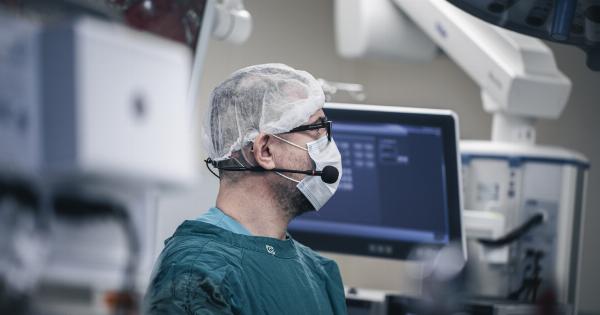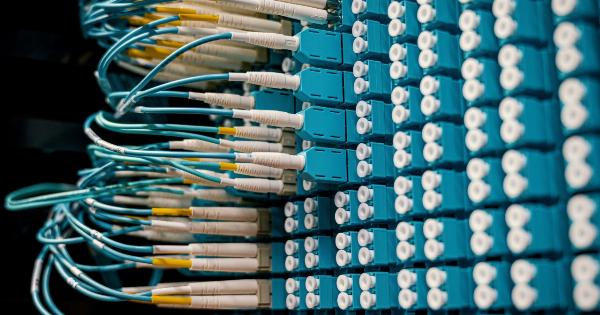The belly button, also known as the navel or umbilicus, is a small depression on the abdomen where the umbilical cord was attached during fetal development.
While belly buttons usually don’t cause any issues, they can become sore or painful in some cases. Belly button aches are usually a sign of an underlying problem that needs to be addressed. In this article, we will explore the causes of belly button aches and the available treatments.
Causes of belly button aches
Several conditions can cause belly button aches. These include:.
1. Umbilical hernia
An umbilical hernia occurs when part of the intestine or abdominal tissue protrudes through the abdominal muscles near the navel. This can cause a visible bulge near the belly button, as well as pain, discomfort, and soreness around the area.
The condition is more common in infants and young children but can also occur in adults, especially those who are overweight or pregnant.
2. Diastasis recti
Diastasis recti is a condition where the abdominal muscles separate due to weakened connective tissues or muscle strain. This can cause a protrusion or bulge near the belly button, as well as pain and discomfort in the area.
The condition can occur during pregnancy, after giving birth, or due to obesity or improper weightlifting techniques.
3. Appendicitis
Appendicitis is an inflammation of the appendix, a small organ located in the lower right abdomen. While the pain usually starts near the navel, it can quickly spread to the lower right abdomen and intensify.
Other symptoms of appendicitis include fever, nausea, vomiting, and loss of appetite. The condition requires prompt medical attention, as a ruptured appendix can be life-threatening.
4. Gastric problems
Stomach issues such as acid reflux, gastroesophageal reflux disease (GERD), and gastritis can also cause belly button aches.
These conditions occur when stomach acid or bile irritates the lining of the esophagus, stomach, or intestines, leading to pain and discomfort. Other symptoms may include heartburn, regurgitation, bloating, and nausea.
5. Infections
The belly button can become infected due to poor hygiene, piercing, or surgery. Infections can cause redness, swelling, discharge, and pain around the area. In severe cases, an abscess or boil may form, requiring prompt medical treatment.
Treatments for belly button aches
The treatment for belly button aches depends on the underlying cause. Here are some common treatments:.
1. Umbilical hernia repair
If the belly button ache is caused by an umbilical hernia, surgery may be required to repair the hernia and alleviate the symptoms.
The procedure involves pushing the protruding tissues back into place and strengthening the abdominal muscles with stitches or mesh.
2. Physical therapy for diastasis recti
If the belly button ache is caused by diastasis recti, physical therapy exercises can help strengthen the abdominal muscles and improve their alignment.
Exercises such as pelvic tilts, side planks, and abdominal crunches can help close the gap between the muscles and reduce the bulge.
3. Medications for gastric problems
If the belly button ache is caused by stomach issues, medications such as antacids, proton pump inhibitors, and H2 blockers can help reduce the acidity and relieve the pain.
These medications are available over-the-counter or by prescription, depending on the severity of the condition.
4. Antibiotics for infections
If the belly button ache is caused by an infection, antibiotics may be necessary to clear the infection and promote healing. It’s important to keep the area clean and avoid touching or picking at the wound to prevent further infection.
Prevention of belly button aches
Here are some tips to prevent belly button aches:.
- Maintain good hygiene by cleaning the belly button area with soap and water regularly
- Avoid tight clothing that can irritate the belly button area and prevent proper airflow
- Avoid excessive weightlifting, especially if you’re a beginner or pregnant
- Avoid smoking, as it can weaken the abdominal muscles and increase the risk of hernia
- Be mindful of your diet and avoid spicy, acidic, or greasy foods that can irritate the stomach
Conclusion
Belly button aches can be a sign of an underlying medical problem that needs to be diagnosed and treated promptly. If you experience persistent belly button pain or discomfort, consult your doctor for a proper evaluation and treatment.
With the right treatment and prevention strategies, you can reduce the risk of belly button aches and enjoy a healthy and pain-free life.




























